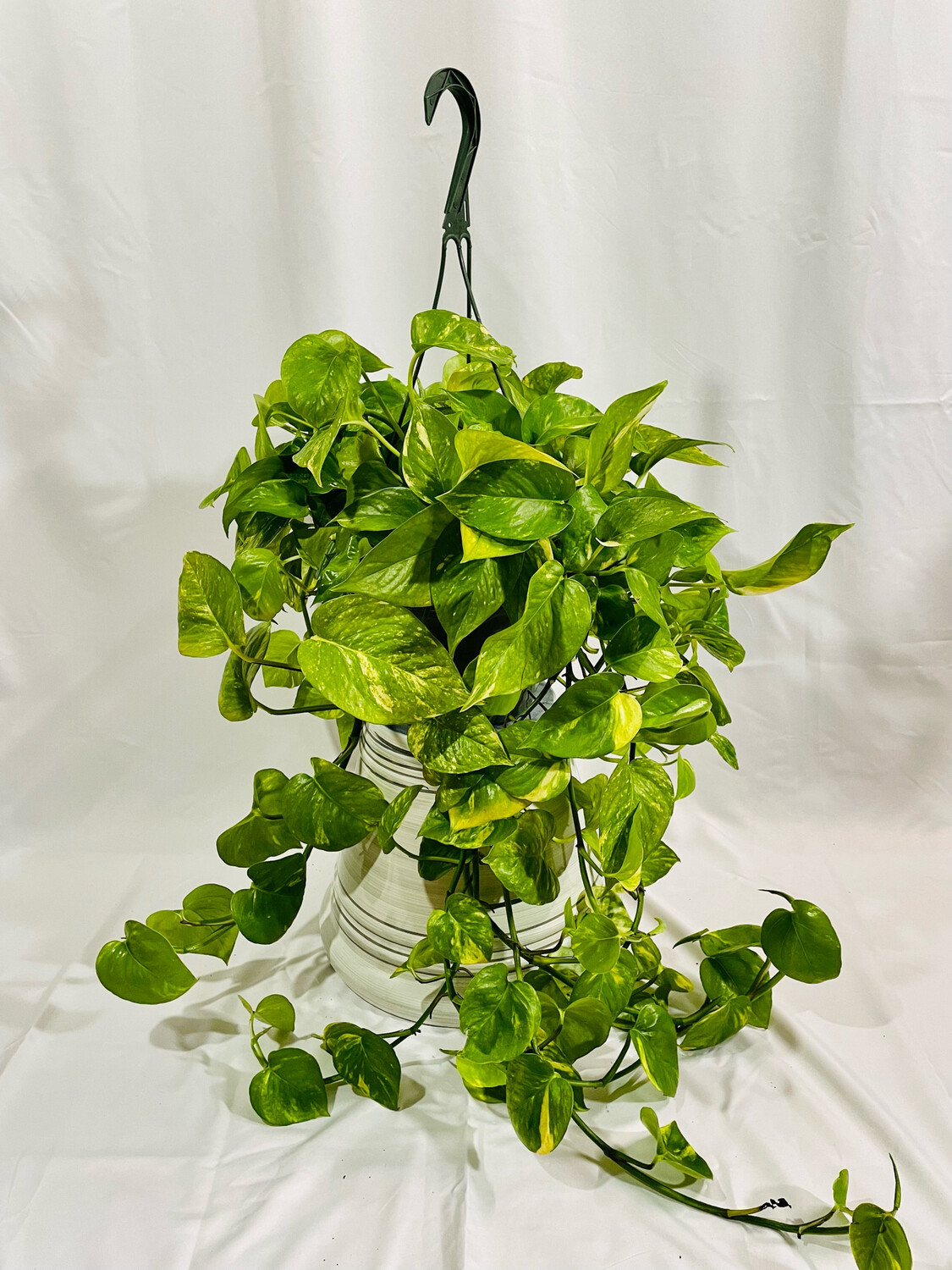Golden Pothos 8 In Hanging Basket
Light
Pothos prefer medium to bright indirect sunlight, but can live in lower light conditions. However, the leaves will be smaller and the vines will become leggy if the light is not bright enough. Scindapsus and epipremnum will keep their vibrant colors and variegation defined if they receive more than 4 hours of indirect sunlight each day. If your space is light challenged, try using LED (light emitting diode) lights as a supplement light source. Avoid setting pothos in the direct rays of the sun as their leaves will burn! Soft morning sunlight is alright, but only for a few hours.
Water
Water the soil thoroughly after the soil is almost completely dry. When the leaves start wilting, it is the best time to water it. Water more often in the growing season and reduce the frequency during the winter months. If the soil becomes compacted then soak the entire root system (root ball) in a bucket of water for 10 minutes to help loosen up the soil. A great way to test the soil for dryness is to pick up the plant and if it feels very light, then it is most likely time to water it!
Soil
All pothos love loose, nutrient-rich potting soil. Use a soil medium that can retain moisture but also allows for draining excess water to avoid root rot. Most pre-mixed soils will suffice. Make sure that there is plenty of organic matter, like coco-coir, peat moss, or shredded leaves, and avoid soils that contain moisture retaining crystals. If your soil drains too quickly, we recommend re-potting your pothos into a compost-rich soil mixture, with less drainage materials. Learn how to create your own universal soil mixture for all of your indoor plants!
Temperature
Most average household temperatures ranges will be adequate for these indoor vines. However, if they remain in temperatures under 55℉, the cold air will stunt their growth. Prolonged exposure to cold temperatures can be fatal to these tropical indoor plants. Ideal temperatures for epipremnum and scindapsus are between 65-80°F. The warmer the temperature the quicker the soil will dry out, so keep this in mind. It is also a good idea to make sure that there is good air circulation as stagnant air can cause fungal problems and invite pests to make a home on your pothos!
Humidity
As with most tropical indoor plants, pothos will benefit from higher humidity, but will do fine in average household air.

